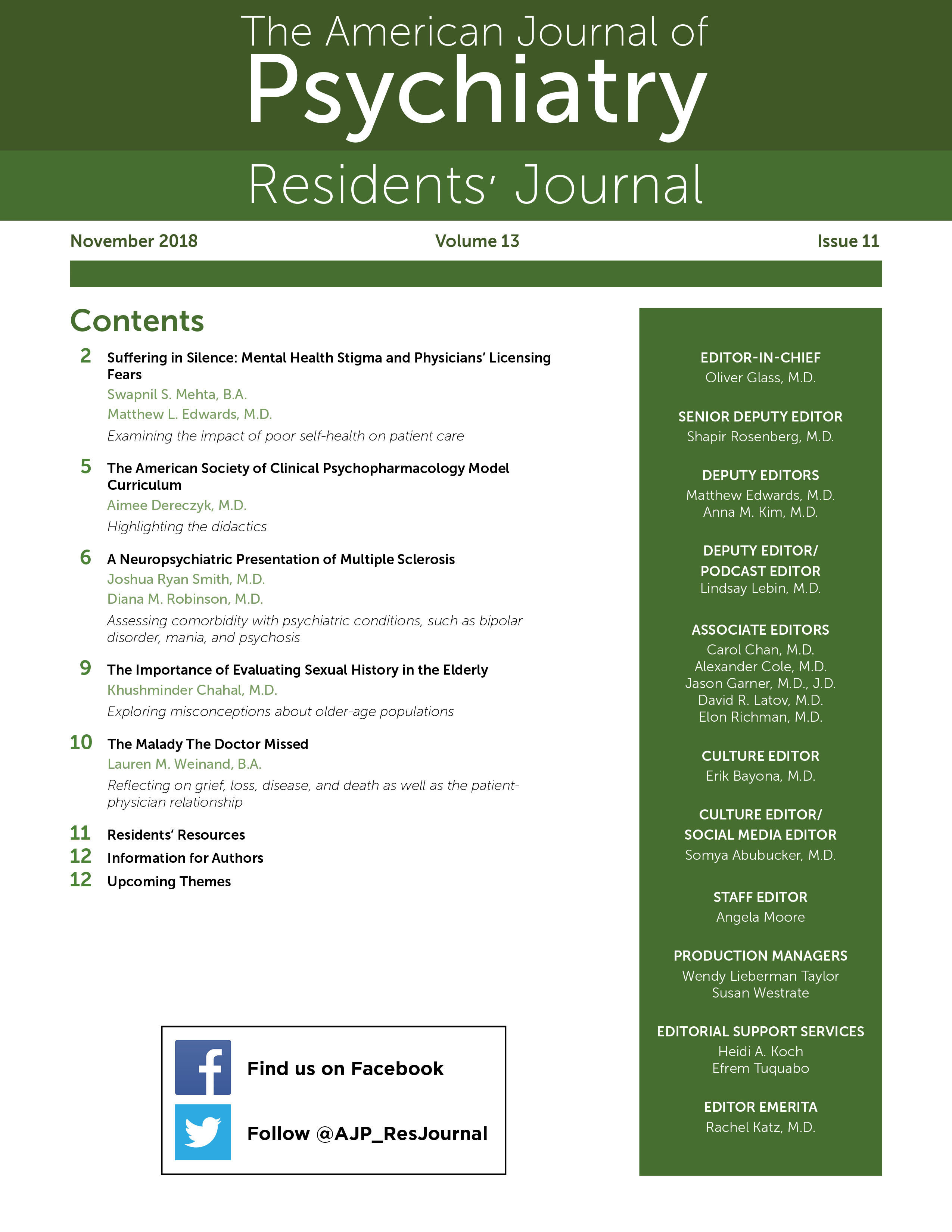The American Society of Clinical Psychopharmacology Model Curriculum
It's an exciting time to be practicing psychiatry. Fortunately, in recent years, we have seen important advancements in effective medication options for our patients. On the other hand, this advancement necessitates modifications in the way psychiatrists-in-training are learning; an "apprenticeship" style is no longer adequate. The key question is how can this large body of knowledge be taught comprehensively and cohesively but also be constantly up to date?
The American Society of Clinical Psychopharmacology developed a Model Psychopharmacology Curriculum—now in its 9th edition—for teachers of clinical psychopharmacology and psychiatric residents and other trainees. The curriculum, which is a comprehensive teaching tool, not a resource text, consists of more than 90 PowerPoint lectures that are divided by level of resident training. Aside from covering all core, required topics (schizophrenia, mood and anxiety disorders, etc.), plus psychopharmacology in the geriatric, child and adolescent, and addiction populations, the curriculum also covers optional, specific topics such as psychopharmacology and the HIV patient, herbal psychopharmacology, off-label prescribing, and cross-cultural psychopharmacology. There is also a lecture on ethical issues associated with psychopharmacology.
Adult learning styles that promote retention and critical thinking are used. Each lecture contains pretest and posttest questions. Core knowledge is visually marked with an asterisk in each presentation, and key learning points are reviewed at the end of each lecture. The curriculum has additional interactive teaching modules such as videos of "model lectures," case vignettes, and Jeopardy-style questions.
Aside from its comprehensive nature, another advantage of the curriculum is that it is a ready-made didactic series requiring little preparation time for educators. A potential limitation is the modest cost to access the curriculum; however, it exists without industry support, and proceeds are used to revise and update the curriculum. Whether you are a trainee or an educator, it can be overwhelming to organize, learn, and update one's knowledge of current psychopharmacology and its use in clinical practice. Certainly, the most significant benefit of the curriculum is the assurance that there will be no substantial gaps in knowledge as trainees begin their independent practice.



